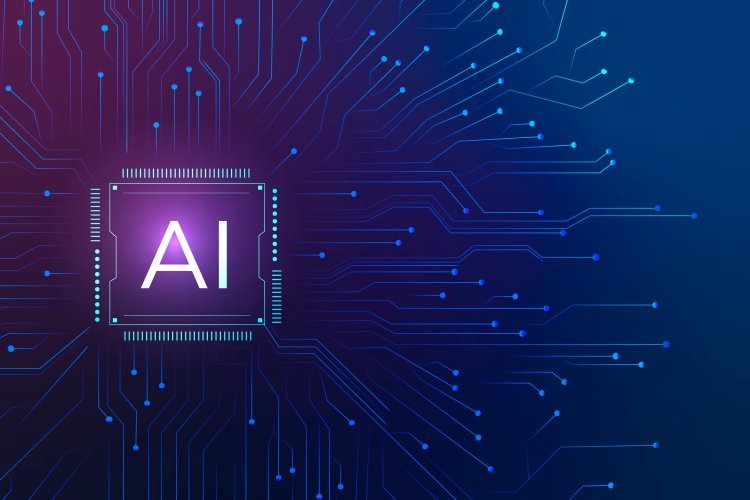Why AI Software Development Services Are Crucial for Cybersecurity

In the modern digital landscape, the increasing frequency of cyber threats has become a serious challenge for both businesses and individuals. As hackers adopt more advanced techniques, traditional cybersecurity methods are finding it harder to keep up. This is where AI software development services come in, offering smarter, more proactive solutions that are transforming the field of cybersecurity. In this article, we’ll delve into why AI-powered solutions are now essential in safeguarding digital environments.
The Escalating Cybersecurity Threats
As digitalization expands, so too do the risks associated with it. From data breaches to ransomware, cybercriminals have found more ways to exploit vulnerabilities. Traditional cybersecurity systems, while still important, often react too late to prevent damage. AI software development services provide a much-needed upgrade by enabling faster threat detection and response through the power of artificial intelligence.
AI’s Role in Detecting Cyber Threats
AI software development services have transformed how cyber threats are detected and managed. Here are key ways AI enhances security:
- Behavior Monitoring: AI analyzes typical user and network behavior, flagging any unusual patterns that may indicate a breach. This allows the system to detect even unknown threats.
- Pattern Recognition: With AI’s ability to process large amounts of data, it can quickly recognize patterns that might signal a cyber attack, including zero-day vulnerabilities.
- Automated Defense: AI-driven systems can automatically initiate responses, such as blocking unauthorized access or isolating compromised systems, significantly reducing the time between detection and action.
Leveraging Predictive Analytics in Cybersecurity
One of AI’s most valuable features in cybersecurity is its ability to predict future attacks through predictive analytics. By analyzing historical data, AI software development services can identify potential weaknesses in a system, helping organizations take preventative action before any malicious activity occurs.
AI-Enhanced Cyber Defense Mechanisms
AI is enhancing the effectiveness of various defense strategies within cybersecurity frameworks. Key applications include:
- Smart Firewalls: AI-powered firewalls adapt to new threats by continuously learning from network behavior, providing stronger protection than static defenses.
- Proactive Threat Hunting: Instead of passively waiting for alerts, AI tools actively search for hidden threats, helping security teams stay one step ahead of attackers.
- Real-Time Monitoring: AI systems operate around the clock, monitoring networks without the need for human intervention, and taking immediate action when necessary.
Strengthening Data Security with AI
Data is the lifeblood of today’s digital economy, making data protection a top priority. AI software development services contribute significantly to data security through:
- Advanced Encryption: AI enhances encryption protocols, making it more difficult for attackers to compromise sensitive information.
- Real-Time Access Control: AI tracks data access in real-time, ensuring that unauthorized users cannot retrieve critical information, thus preventing insider threats.
- Preventing Data Leaks: AI monitors data flows and flags any suspicious outgoing data that may suggest an attempted breach or leak.
AI and Identity & Access Management (IAM)
Unauthorized access is a major cybersecurity issue, but AI software development services are helping improve identity and access management in several ways:
- Biometric Security: AI-driven systems are capable of advanced biometric authentication, such as fingerprint or facial recognition, adding an extra layer of protection.
- Dynamic Access Control: AI monitors access requests in real-time, analyzing behavior to detect and prevent unauthorized access attempts.
- Adaptive Authentication: AI adjusts authentication measures based on the user’s environment, such as location or device, ensuring tighter security without compromising convenience.
AI in Mitigating Cyber Attacks
Once a cyber attack is identified, AI can play a critical role in damage control. Its ability to act quickly is vital in these situations:
- Automated Containment: AI can isolate compromised systems, preventing the spread of malware or further unauthorized access.
- Rapid Malware Removal: AI detects and eliminates malware much faster than manual systems, reducing the risk of widespread damage.
- Phishing Detection: AI scans email communications and flags phishing attempts by recognizing unusual patterns, protecting organizations from one of the most common cyber attack methods.
AI and Human Expertise: A Powerful Combination
AI does not replace human cybersecurity professionals—it enhances their capabilities. By automating repetitive tasks and providing valuable insights, AI allows experts to focus on more complex security challenges, making overall defense strategies more effective.
The Future of AI in Cybersecurity
As cyber threats continue to evolve, AI will become even more critical in defending against them. Future developments in generative AI development services will lead to even smarter, more proactive cybersecurity systems capable of predicting and preventing attacks before they occur.
Conclusion
The importance of AI software development services in cybersecurity cannot be overstated. In the face of increasingly sophisticated threats, AI-powered solutions are indispensable for detecting, mitigating, and preventing cyber attacks. By integrating AI into their cybersecurity measures, businesses can better protect their data, systems, and customers. As the digital world continues to grow, AI will remain a crucial tool in safeguarding against future threats.
FAQs
- What is the role of AI in modern cybersecurity?
AI improves cybersecurity by providing faster and more accurate threat detection, automating responses, and predicting future attacks. - How does AI detect cyber threats?
AI monitors user and system behaviors, analyzes vast datasets, and identifies patterns that indicate potential cyber attacks, even detecting previously unknown threats. - Can AI fully replace human cybersecurity teams?
No, AI complements human expertise by automating repetitive tasks and offering insights, while cybersecurity professionals handle complex issues and strategic decisions. - Does AI help prevent phishing attacks?
Yes, AI can detect phishing attempts by analyzing email content for suspicious patterns and language, greatly reducing the risk of successful phishing scams. - How does AI improve data security?
AI enhances data security through advanced encryption methods, real-time access control, and monitoring to prevent unauthorized data access or leaks. - What is the future of AI in cybersecurity?
AI’s future in cybersecurity will see it playing a more proactive role in predicting and preventing attacks, ensuring stronger and more reliable protection for organizations.
What's Your Reaction?















